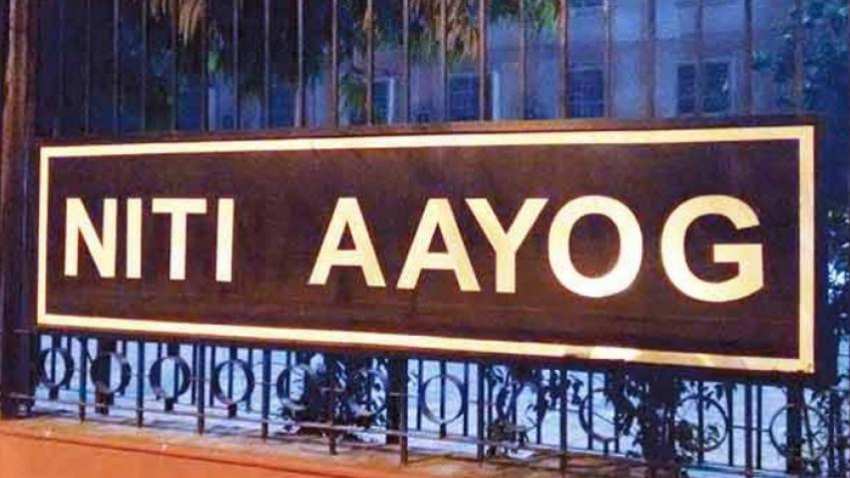By: Irfan Attari Kashmiri
On this auspicious occasion of ‘World No-Tobacco Day’, health organizations, governments, and individuals worldwide unite to raise awareness about the devastating health and economic consequences of tobacco use. Every year, on May 31st, this international observance emphasizes the need to combat tobacco consumption, promote healthy lifestyles, and work towards a tobacco-free world.
Initiated by the World Health Organization (WHO) in 1987, World No-Tobacco Day has since become a cornerstone event in the global fight against tobacco. With the theme for this year being “Commit to Quit,” the campaign emphasizes the importance of quitting smoking and supporting those who seek to break free from the clutches of tobacco addiction.
Tobacco use continues to be a leading cause of preventable deaths worldwide, claiming the lives of more than 8 million people annually. This staggering toll encompasses not only smokers but also individuals exposed to second-hand smoke. The impact on public health is undeniable, with tobacco-related diseases such as lung cancer, heart disease, stroke, and respiratory illnesses taking a heavy toll on individuals, families, and societies at large.
World No-Tobacco Day serves as a catalyst for governments and health organizations to implement evidence-based policies and interventions aimed at reducing tobacco consumption. It urges countries to adopt measures such as increased taxation on tobacco products, comprehensive smoke-free legislation, graphic health warnings on packaging, and bans on tobacco advertising, promotion, and sponsorship.
This year’s campaign places a special focus on cessation support, recognizing that quitting smoking is a challenging but crucial step towards better health. It aims to provide resources, information, and encouragement to individuals looking to quit tobacco, as well as equipping healthcare professionals with the tools and knowledge to assist them effectively. The campaign calls on governments and healthcare systems to prioritize cessation services and ensure their availability and accessibility to all individuals.
However, the battle against tobacco extends beyond health concerns alone. Economically, tobacco use places a significant burden on societies. The costs associated with healthcare expenditures, lost productivity, and the environmental impact of tobacco cultivation and production are substantial. By discouraging tobacco use, governments can not only improve public health but also contribute to sustainable economic growth.
Efforts to reduce tobacco consumption have seen progress in many parts of the world, thanks to increased awareness and the implementation of stringent tobacco control measures. However, challenges remain, particularly in low- and middle-income countries where tobacco companies often target vulnerable populations with aggressive marketing tactics.
On World No-Tobacco Day, let us take a moment to reflect on the tremendous progress made thus far, while acknowledging the work that lies ahead. Each individual’s commitment to quit smoking or support others in their journey can have a significant impact on improving global health outcomes.
As the world unites to observe World No-Tobacco Day, let us stand together, championing a tobacco-free future. By working collaboratively across borders, empowering individuals, and implementing effective policies, we can create a healthier, smoke-free world for generations to come.
Remember, the power to quit is within reach, and the time to commit to a tobacco-free life is now.
In the global effort to combat tobacco use and promote a tobacco-free future, various individuals, organizations, and non-governmental organizations (NGOs) play vital roles. Here are some notable entities and their contributions:
World Health Organization (WHO): As the primary driving force behind World No-Tobacco Day, WHO leads the global campaign, sets the annual theme, and provides guidance and resources to member countries. The organization conducts research, collects data, and promotes evidence-based policies to control tobacco use.
National Governments: Governments worldwide play a crucial role in implementing tobacco control measures. They develop and enforce policies such as tobacco taxation, smoke-free legislation, and packaging regulations. Governments also allocate resources for public awareness campaigns, cessation programs, and enforcement efforts to combat illicit tobacco trade.
Non-Governmental Organizations (NGOs): Numerous NGOs are dedicated to tobacco control advocacy, prevention, and cessation support. Examples include the Campaign for Tobacco-Free Kids, the World Lung Foundation, the American Cancer Society, and Action on Smoking and Health (ASH). These organizations work tirelessly to raise awareness, influence policy change, and provide support to individuals seeking to quit tobacco.
Healthcare Professionals: Doctors, nurses, counselors, and other healthcare professionals play a critical role in assisting individuals in their journey to quit smoking. They provide counseling, prescribe nicotine replacement therapies or medications, and offer support through cessation clinics and programs. Their expertise and guidance are invaluable in helping individuals overcome tobacco addiction.
Educators and Youth Organizations: Educators and youth-focused organizations play a crucial role in preventing tobacco use among young people. They deliver educational programs, organize awareness campaigns, and promote smoke-free environments in schools and communities. By empowering young individuals with knowledge and skills, they contribute to a generation less likely to start smoking.
Media and Journalists: Journalists and media outlets play a vital role in disseminating information about the dangers of tobacco use, highlighting successful cessation stories, and exposing tobacco industry practices. Their reporting raises awareness, fosters public debate, and holds both governments and tobacco companies accountable.
Researchers and Scientists: Researchers and scientists continuously study the impact of tobacco on health, evaluate the effectiveness of tobacco control measures, and explore innovative cessation methods. Their findings provide the evidence base necessary for policymakers and healthcare professionals to develop informed strategies and interventions.
Individuals and Former Smokers: Ultimately, the commitment and determination of individuals to quit tobacco and support others are at the heart of the movement. Former smokers who have successfully quit often become advocates, sharing their experiences, and providing inspiration to others. Each individual’s decision to quit and lead a tobacco-free life contributes to the collective effort for a healthier future.
The combined efforts of these individuals, organizations, and NGOs are instrumental in promoting World No-Tobacco Day’s objectives and working towards a tobacco-free world. Their dedication and collaboration bring us closer to a future where the harmful effects of tobacco are minimized, and the well-being of individuals and societies is prioritized
Significance:
Health Impact: Tobacco use remains a leading cause of preventable deaths globally, resulting in over 8 million fatalities each year. By highlighting the health risks associated with smoking and secondhand smoke exposure, World No-Tobacco Day educates the public about the urgency of quitting and adopting tobacco-free lifestyles.
Policy Advocacy: World No-Tobacco Day serves as a platform for governments and health organizations to advocate for evidence-based policies and legislation. These measures include increasing taxes on tobacco products, implementing comprehensive smoke-free laws, enforcing graphic warning labels, and banning tobacco advertising and promotion.
Cessation Support: The campaign emphasizes the importance of quitting tobacco and offers resources and assistance to individuals who want to quit. It promotes access to cessation services, encourages healthcare professionals to provide support, and empowers individuals to take control of their health by breaking free from tobacco addiction.
Global Impact and Achievements:
World No-Tobacco Day has made significant strides in tobacco control efforts since its inception. Countries worldwide have implemented comprehensive tobacco control policies, leading to reduced smoking rates, increased public awareness, and improved healthcare services for those seeking to quit.
The initiative has also shed light on the tactics employed by the tobacco industry, exposing their deceptive marketing practices and pushing for stricter regulations. Additionally, World No-Tobacco Day has contributed to the establishment of the WHO Framework Convention on Tobacco Control (FCTC), an international treaty that provides guidelines for comprehensive tobacco control strategies.
World No-Tobacco Day serves as a powerful reminder of the ongoing battle against tobacco use and the collective effort needed to create a smoke-free world. By raising awareness, promoting policy change, and supporting cessation services, this annual observance continues to make a profound impact on public health, saving lives and improving the well-being of individuals and communities worldwide. As we commemorate World No-Tobacco Day, let us renew our commitment to tobacco control and work towards a future where tobacco-related diseases are a thing of the past.
The Author is a Social Activist, Writer, President of Foundation For Youth Web & Student Of Cybersecurity).askirfanattari@gmail.com





